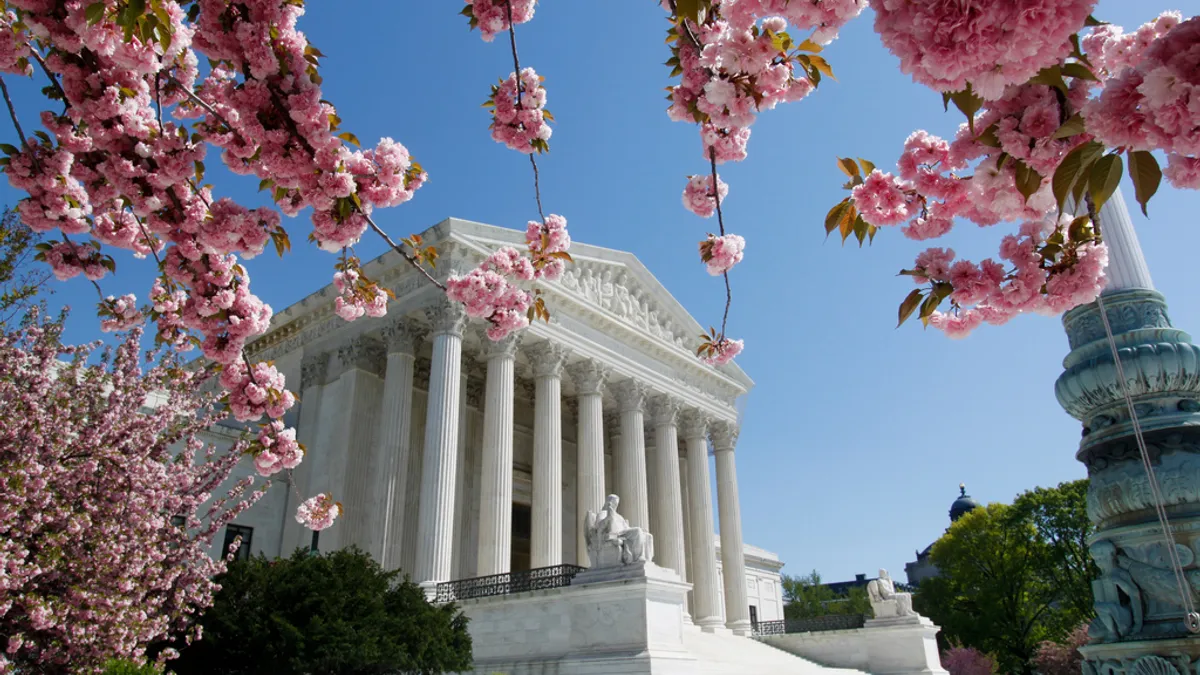Dive Brief:
- The U.S. Supreme Court declined a request to stay litigation over the controversial Waters of the United States (WOTUS) rule, which the White House asked for as it reconsiders the environmental regulations.
- Last month President Trump signed an executive order directing the U.S. Environmental Protection Agency to reconsider the controversial WOTUS rule, in which the Obama administration clarified federal jurisdiction over waterways and wetlands under the Clean Water Act of 1972.
- The question before the Supreme Court includes whether District or Circuit courts have jurisdiction over the rule. The White House had asked to hold the case in abeyance as it makes several major environmental policy moves.
Dive Insight:
As the fight over President Trump's Supreme Court nominee heads for a Senate showdown later this week, the high court delivered a setback to the administration's environmental plans.
On Tuesday, the court denied a motion to hold the briefing schedule in abeyance.
The 6th U.S. Circuit Court of Appeals agreed to take the WOTUS case last year, but the National Association of Manufacturers has argued it belongs in District court.
The WOTUS rule was an attempt to clarify which smaller waterways and wetlands should be regulated under the Clean Water Act because they feed into larger bodies already covered by the law. Previously, the definition had been left to state authorities to determine.
Trump, in signing the executive order, called the rule "one of the worst examples of federal regulation, and it has truly run amok, and is one of the rules most strongly opposed by farmers, ranchers and agricultural workers all across our land."
Utility companies opposed the regulation from the outset, concerned that enhanced federal jurisdiction could complicate siting for energy projects. In 2014, when the rule was proposed, the Edison Electric Institute said it would "prolong the transition to a cleaner fleet in part because of new and uncertain permitting requirements."
Environmentalists and liberal states asked the Supreme Court to continue with the case, E&E reports, and the court's decision may indicate the Justices see the legal question of Clean Water Act jurisdiction as significant, even if the White House alters the rule.















